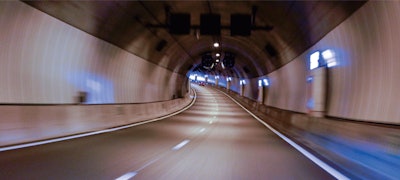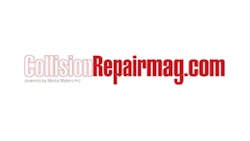
| ARC’s Steve Fletcher, along with Summerhill Impact’s Janet Taylor and Jennifer Court, ventured into the heart of Nunavut to help the territory’s recycling program. |
By Mike Davey
Arviat, Nunavut — July 22, 2014 — There are significant challenges to recycling vehicles in Canada’s North, but a recent trip undertaken by industry stakeholders shows that community support isn’t one of them.
Tundra Take-Back is a pilot project being administered through Summerhill Impact, a not-for-profit organization focused on creating and delivering environmental initiatives with partners in the government and business sectors. Summerhill Impact has partnered with the Auto Recyclers of Canada (ARC) and numerous other organizations to help bring the project to fruition.
Steve Fletcher of ARC, Janet Taylor and Jennifer Court from Summerhill Impact, and Bob Downey from Gerdau Ameristeel recently traveled to the community of Arviat, Nunavut both to physically examine the vehicles that are in need of recycling and to build community engagement.
The trip was an unquestioned success from both perspectives.
“We were meeting with a lot of the local officials and other sponsors and partners,†says Fletcher. “We’ve been in discussion with them before, but it’s important to have the face-to-face meetings and gain a better understanding of what they want to accomplish.â€
Fletcher says it was also important to physically examine the location near the community where metals are dumped. While a preliminary examination was conducted in May, the melting snow has revealed far more of the landscape and the discarded vehicles.
“It’s an evolving project,†says Fletcher. “Looking at it, I thought ‘part of this will be more complex than we ever thought,’ but a lot of people came forward and said they were committed to helping.â€
Part of the reason for this trip was to build community engagement. The trip happened to coincide with Nunavut Day, a celebration of Nunavut gaining official status as a Canadian territory.
“We were in the parade for Nunavut Day, carrying our banner and handing out candy,†says Fletcher. “We also took part in the celebration that night at the community centre. We brought along a piñata shaped like a car that turned out to be quite popular.â€
Janet Taylor of Summerhill Impact will be running the recycling program in Gjoa Haven, another community in Nunavut. She says one part of the celebration at the community centre brought home that the Tundra Take-Back program is generating a positive reaction in the community.
“We made an announcement, translated into Inuktitut, about the program and why we were there,†says Taylor. “What was really interesting to me was that, despite being a very busy room, everyone went quiet. There were actual cheers when the announcement was finished.â€
Members of the team were also invited to serve as judges for several Nunavut Day competitions. Steve Fletcher was one of the judges for the traditional dress competition, while Taylor and the others served as judges for Nunavut Day cakes. The trip lasted a few days longer than originally intended, as weather conditions prevented flights from landing for several days. The time wasn’t wasted, though, as the team not only spent more time engaging with the community, but also gaining valuable insights about conditions in Nunavut.
“The people who live there have the attitude that you can’t do anything about what may happen, so you have to be adaptable,†says Fletcher.
These are words to live by for a program like Tundra Take-Back. While the program can leverage the strength and expertise of recycling professionals from other areas, it must be suited to conditions as they are.
The extra days in Nunavut also resulted in a few animal encounters, including a run in with a polar bear and the sighting of a pod of beluga whales entering Hudson’s Bay.
“We saw a polar bear near the metals dump,†says Fletcher. “We were told to expect that, so it wasn’t a shock. But one of the locals asked me ‘did you see the bigger one?’ We had not so it made us a little nervous.â€
For Taylor, the animal sightings helped to reinforce the importance of the mission.
“Being able to visit both Arviat and Gjoa Haven, you can sometimes see pollutants from these vehicles trickling into the ground,†she says. “Look just beyond, you can see the tundra, pristine and beautiful, and just beyond that, the Arctic Ocean. It really brings home how important it is that we protect one of Canada’s most iconic places.â€
















.yCUbn8MhvU.png?ar=16%3A9&auto=format%2Ccompress&fit=crop&h=135&q=70&w=240)
